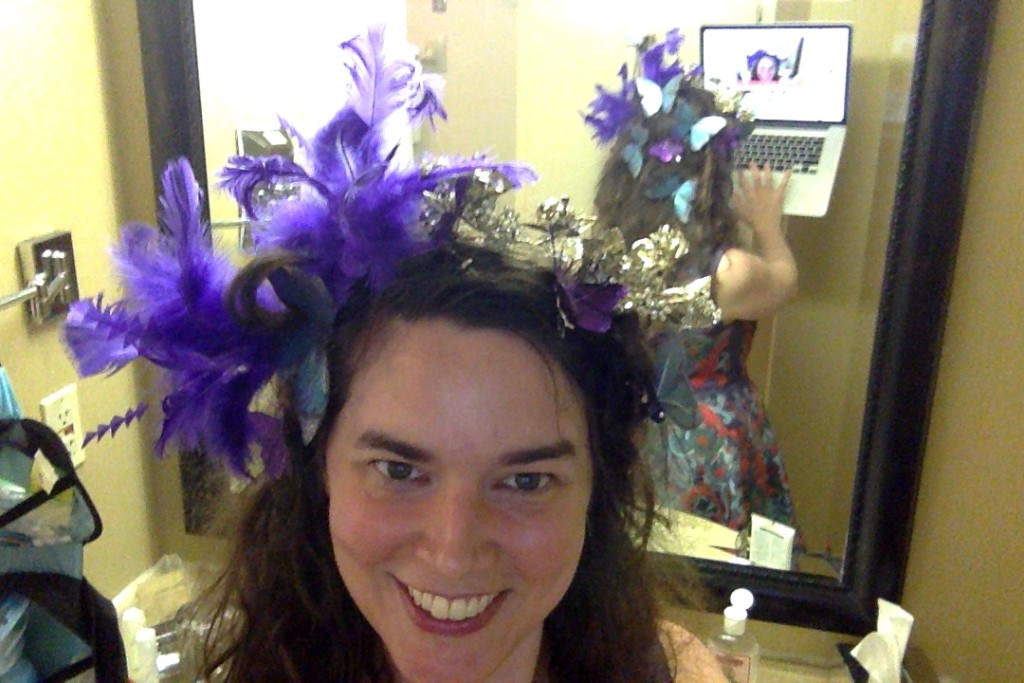Topic: math anxiety
CASE STUDY: This 11th grader stopped binge eating because the math stress was gone
Monday, October 8th, 2018Is your child consumed by math anxiety, even though they’re “doing everything right?”
These are some of my favorite students to work with, because I used to struggle with the exact same thing.
When this particular Algebra II/Trig student first came to me, she was making decent grades – Cs, Bs and low As – but at enormous psychic cost.
She would spend hours every night perfectionistically slaving over her math homework, but still feel completely unclear about the material and consumed by math anxiety.
Math felt like a collection of shards of broken glass that she was putting massive energy into “keeping together,” but they never actually fit together or added up to a cohesive whole.
How did she shift from perfectionism to mastery?
Let’s break it down!
1. When this student started working with me, one of the things that really stressed her out was her formulas sheet.
A page covered in things she hadn’t yet learned, that she would eventually have to memorize, many involving symbols or terms she’d never heard of yet, all crammed onto one scary page.
OF COURSE this freaked her out!
So we set the formulas sheet aside.
2. And instead, we built the formulas sheet from scratch – one formula at a time.
First, we started with the simplest, most basic formula, and built it from scratch using foundational concepts that this student already knew, like the Pythagorean formula.
And we’d make it super visual, drawing diagrams that explained why it worked.
Then she’d “teach it back to me” and build it from scratch and draw the diagrams herself.
Then the next session, we’d do the same thing again.
And again.
And again.
Until each formula was totally internalized, and she could build almost the entire formulas sheet from scratch, all by herself.
3. This created massive self-trust.
Not only did this student KNOW all the formulas, she knew WHY they worked, AND she could build them on her own.
Also, taking the time to do this so slowly, in the end, created massive speed.
This student became one of the fastest problem-solvers I’ve ever seen at this level …
BECAUSE she had taken the time to understand the fundamental concepts so meticulously.
The end result was that, without trying to be fast, this student breezed through the material, understanding at a deep conceptual level problems that many other students just experience as a random collection of rules or weird answers spit out by their TI-82.
Now this student experienced math as a cohesive whole, where she belonged, instead of a random collection of disconnected shards.
4. So, how did this play out in her classroom?
As a result of our work, this student’s grades hit the roof.
She was awarded the “most improved student” award by her teacher – in front of her whole school.
She was so much less stressed that she stopped binge eating…
…just because the math anxiety was gone.
And she applied for and won a prestigious internship at a European research-based skin care company in Georgetown, DC – being chosen over COLLEGE STUDENTS!!!
(This is an awesome example of how when math is no longer an obstacle, students can really bring their dreams and visions out into the world.)
Do you have a child who is struggling with this kind of math anxiety?
Maybe they’re actually getting good grades, but not really understanding how the pieces fit together.
Or maybe their grades have started to suffer.
Either way, I’d love to connect with you get clear on whether or not my work would be a fit for your child.
Just fill out this application to get started: fill out your application here
I am so excited to connect!
Sending you love,
REBECCA
Related Articles:
Case Study: A 5th grader goes from believing “Math Doesn’t Like Me” to singing and dancing about math while wearing a purple tutu
Afraid Your Math Teacher Will Judge You?
Case Study: A 10th grader goes from feeling like math is a foreign language to becoming the most called-upon student in her class
The Treachery of Invisible Math Anxiety
Comment on this post (4)










